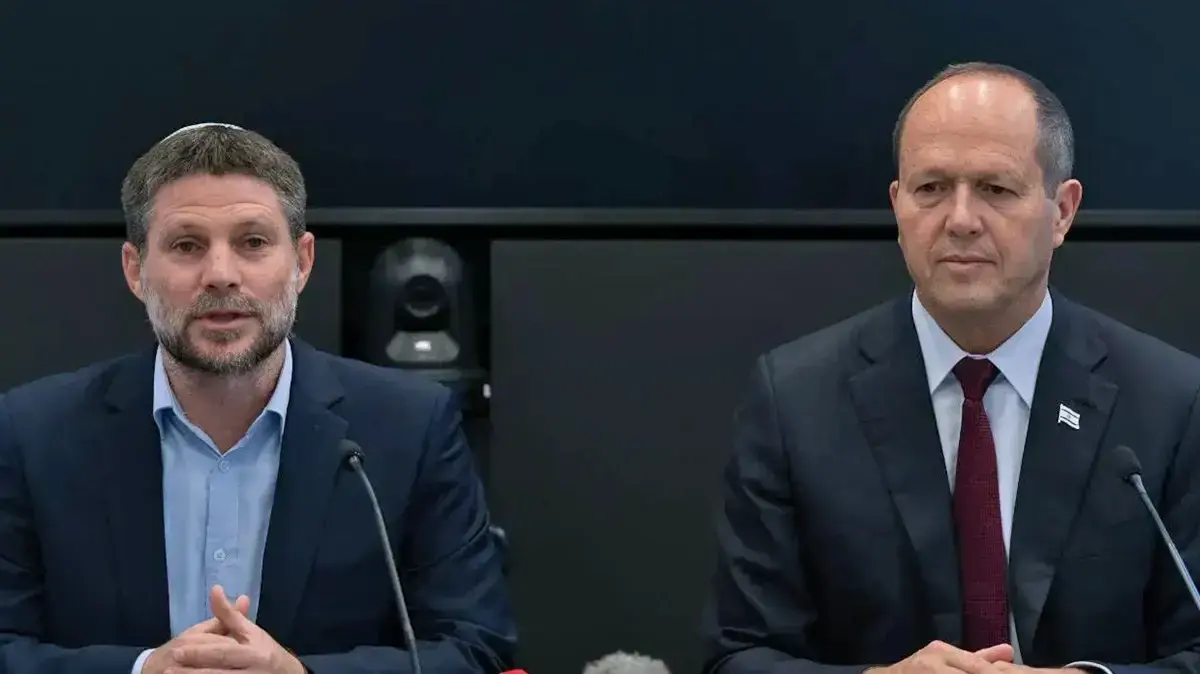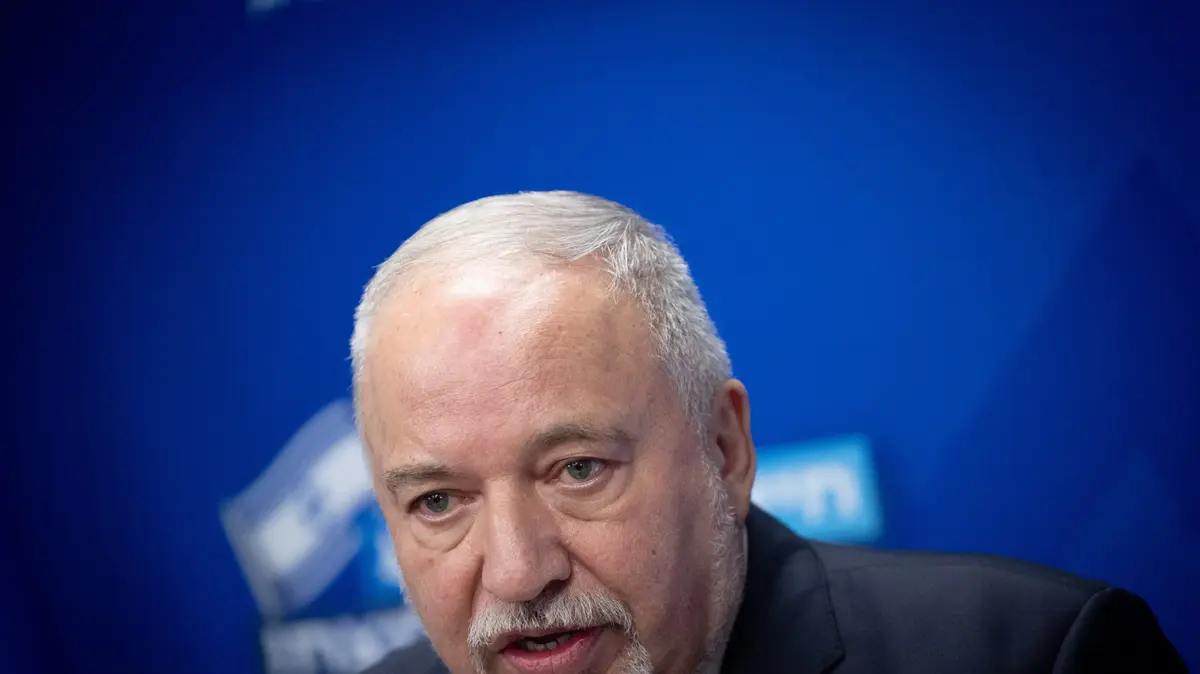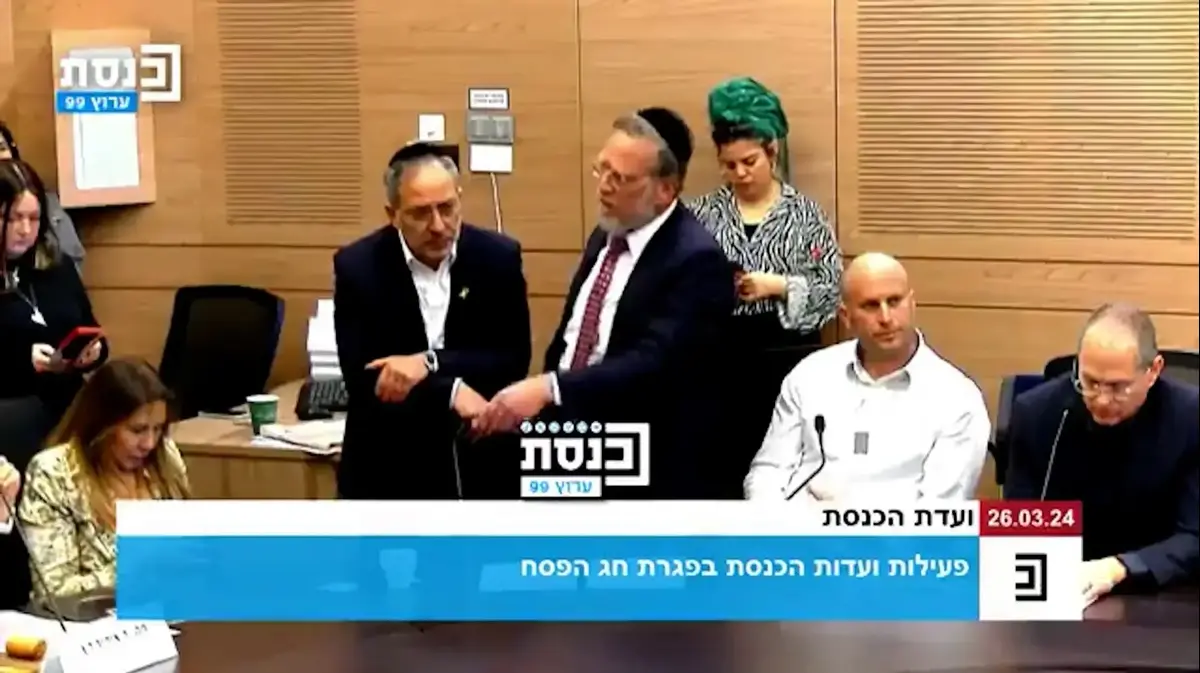About six months after it fell: The Citizenship Law was approved by a ministerial committee, but it does not have a majority in the Knesset
The law, which bans the unification of Palestinian families and poses a threat to the coalition, is expected to reach a later vote in the Knesset plenum - where it has no majority.
Meretz Minister Tamar Zandberg opposed the move, Labor Minister Nachman Shai abstained, and the other ministers supported it.
"An unacceptable attempt to veto," said committee chairman Saar
Yaki Adamkar
09/01/2022
Sunday, 09 January 2022, 15:47 Updated: 16:09
Share on Facebook
Share on WhatsApp
Share on Twitter
Share on Email
Share on general
Stormy debate over the Electricity Law: Bennett clashed with a Knesset member from the opposition (Photo: Knesset Channel)
The Citizenship Law, which bans the unification of Palestinian families, was approved today (Sunday) by the Ministerial Committee for Legislation, about six months after it fell in the Knesset plenum.
However, although the bill was approved by the committee, it does not have a majority in the Knesset.
Minister Tamar Zandberg of Meretz objected, Minister Nachman Shai of Labor abstained, and the other ministers supported.
Zandberg blamed Interior Minister Ayelet Shaked for initiating the law and said: "We agreed that even if the law is not passed in the Knesset, the summaries must be adhered to. She did not abide by them. Meretz will vote against."
The committee's chairman, Justice Minister Gideon Saar, said in response: "There is an attempt by a minority in the government to veto it.
An unacceptable attempt, "and despite Meretz's opposition, the vote took place as planned, and the law was approved by the committee.
More on Walla!
Without a guaranteed majority: The Citizenship Law is the first test for a coalition
To the full article
More on Walla!
Due to the lack of a majority: the vote on the Family Reunification Law will be rejected once again
The opposition is threatening: we will oppose the Family Reunification Law;
Ganz to Netanyahu: "Security over politics"
The secret to improving your sex life - now on a special sale
It is not expected to get a majority in the Knesset.
Coalition leaders.
June, 2021 (Photo: Walla !, Ariel Zandberg.)
Later, he is expected to vote in the Knesset plenum, subject to coalition agreements.
Beyond Meretz, RAAM also opposes the law, but its position was not expressed in the committee in light of the fact that the party does not have a representative in it.
What are the main points of the law prohibiting family reunification?
This is an hourly extension that has been extended every year since 2003, when it was enacted in the background of the second intifada.
Its purpose is to impose restrictions on the granting of citizenship or residence permits in Israel to Palestinians who have married Israelis, as well as to citizens of Iran, Lebanon, Syria and Iraq who wish to receive status in the context of family reunification.
The temporary order was born under the direction of the then Minister of the Interior, Eli Yishai, at the end of March 2002.
What was the background to the legislation?
It was one of the most difficult months in the second intifada, a few days after the attack on the Park Hotel in Netanya and with the start of Operation Defensive Shield.
The day after the attack on the Matzah restaurant in Haifa, in which 16 civilians were killed, Yishai ordered all the directors of the population bureaus in the country to stop the "family reunification" proceedings.
These procedures allowed residents of the Occupied Territories who are spouses of Israeli citizens and residents to obtain legal status in Israel.
The reason for its enactment was security: the terrorist who carried out the attack in Haifa, Shadi Tubassi, lived in Jenin, but held an Israeli identity card, since his mother was an Israeli citizen.
The law applies to spouses and children over the age of 14 who were born to a mixed couple.
What happened to the petitions against the law?
Over the years, petitions have been filed against the law in the Supreme Court.
In 2012, a hearing was held in an expanded panel of High Court judges who heard several petitions against the law. A temporary "temporary order" that requires annual approval by the Knesset, but past experience shows that most Israeli Knessets have approved the law almost automatically, without holding a debate or examining the data.
news
Political-political
Tags
citizenship law









